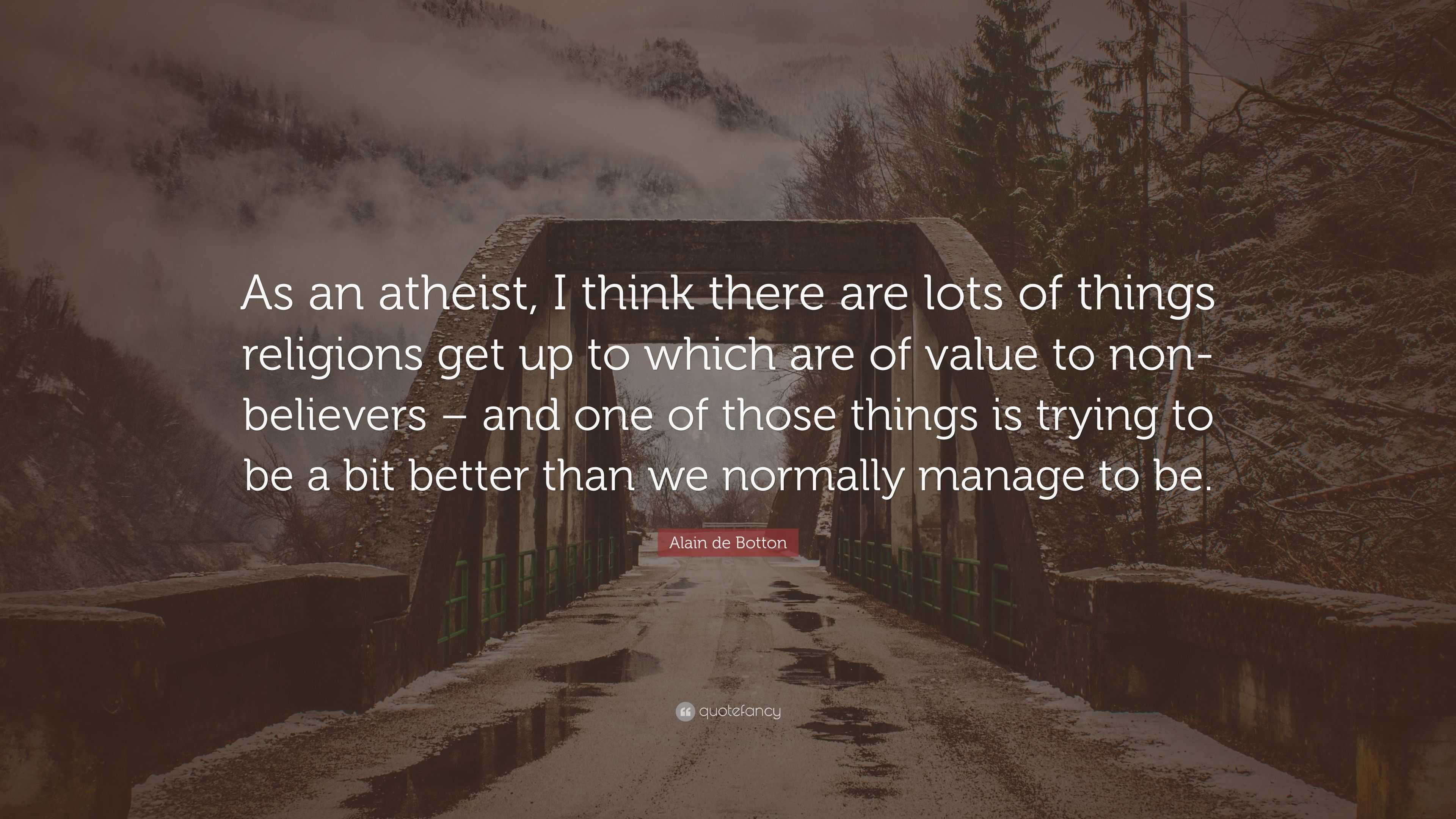
In “Institutions”, for instance, de Botton compares organised religions to corporations, in the sense that they efficiently spread their message, accumulate wealth, and enact social change. These problems are as varied as “Education”, “Pessimism”, and “Community”. de Botton takes a problem in society, discusses how various religions have attempted to solve it, and then proposes a secular version that we might implement to better our lives. Religion For Atheists is straight-forward in its layout, too. Basically, he’s saying we can all benefit from the wisdom and power of religion without having to get down with any of the woo-woo aspects of it. Religious or not, we all need a little cohesion and coping, so he contends that while the supernatural claims of any and all religions are false (and that can be taken as read), some aspects of them are still useful in their applications for secular life and society. In his view, all religions evolved to serve the same basic needs: community cohesiveness, and coping with the inevitable pain of life. In fact, there’s very little about “God” in this book at all, so if that’s what you’re after, you can skip this one.ĭe Botton also says straight-up that he has no intention of comparing religions with one another (phew!). The cover of Religion For Atheists promises “a non-believer’s guide to the uses of religion”, which is right up my alley.ĭe Botton starts off by pointing out that it is extremely boring to ask whether any given religion is “true” or “right” on the question of God and the afterlife (and I heartily agree). I am, like de Botton, a lifelong atheist (seriously, I didn’t even do religious education in school, and I can count on one hand the number of times I’ve entered a house of worship). A lot has changed for me since 2012, and I no longer demand that my books be a giggle-fest in order to keep going.


Now, I’m a big believer that a book has to come to you at the right moment in your life – and that’s why I decided I was ready to give Religion For Atheists another shot. When the first hundred pages didn’t even elicit a chuckle, I guess I figured it was a waste of my time. de Botton was hilarious in the interview, which is what convinced me to pick up his book in the first place. I can’t remember why I abandoned the book exactly – about a hundred pages in, according to where I left the bookmark – only that it wasn’t as funny as I was expecting. Religion For Atheists was published back in 2012, and I picked it up shortly after hearing an interview with Alain de Botton on Triple J’s Sunday Night Safran program (RIP!). (If you buy a book through an affiliate link on this page, I’ll earn a small commission, which will get me one step closer to God… probably.)


 0 kommentar(er)
0 kommentar(er)
